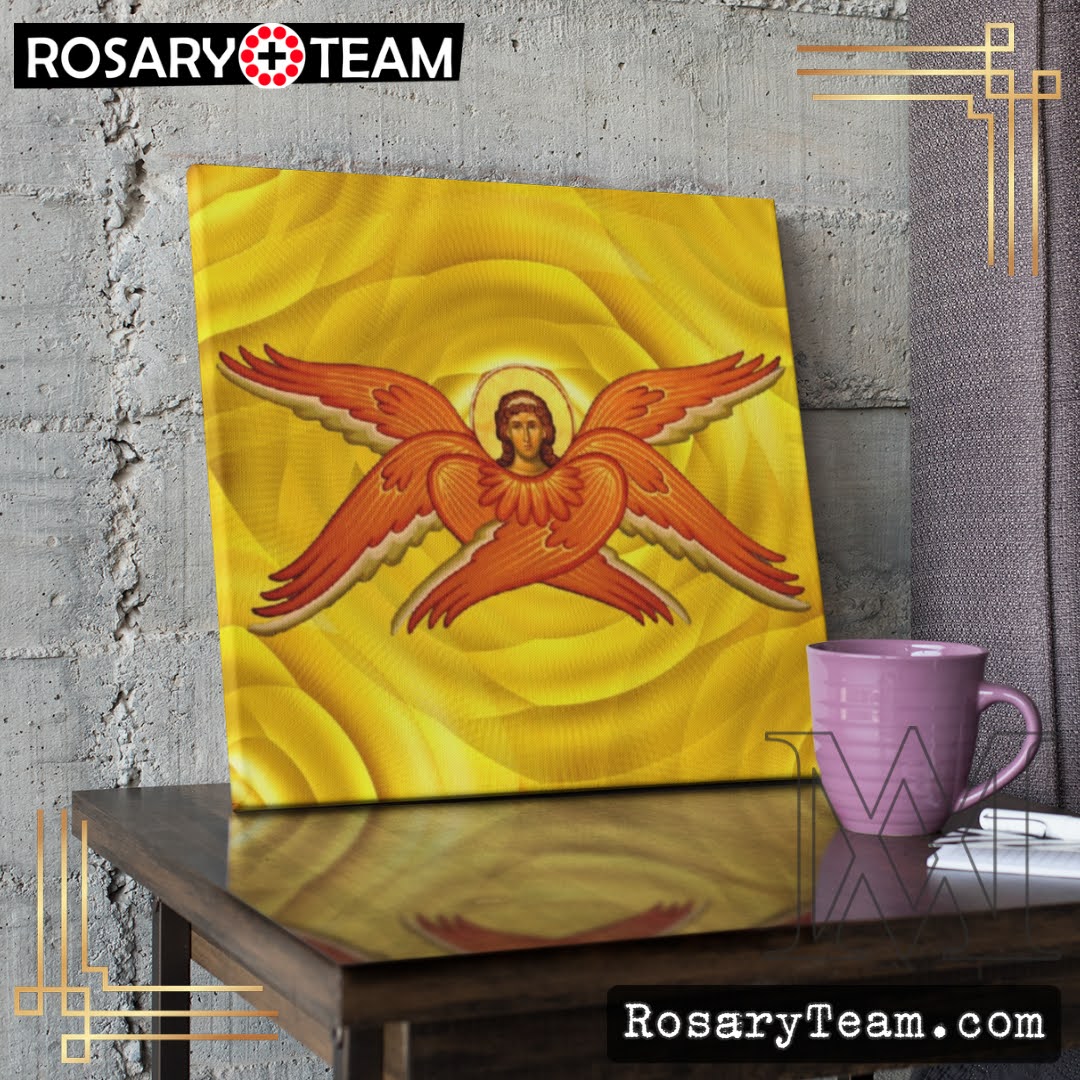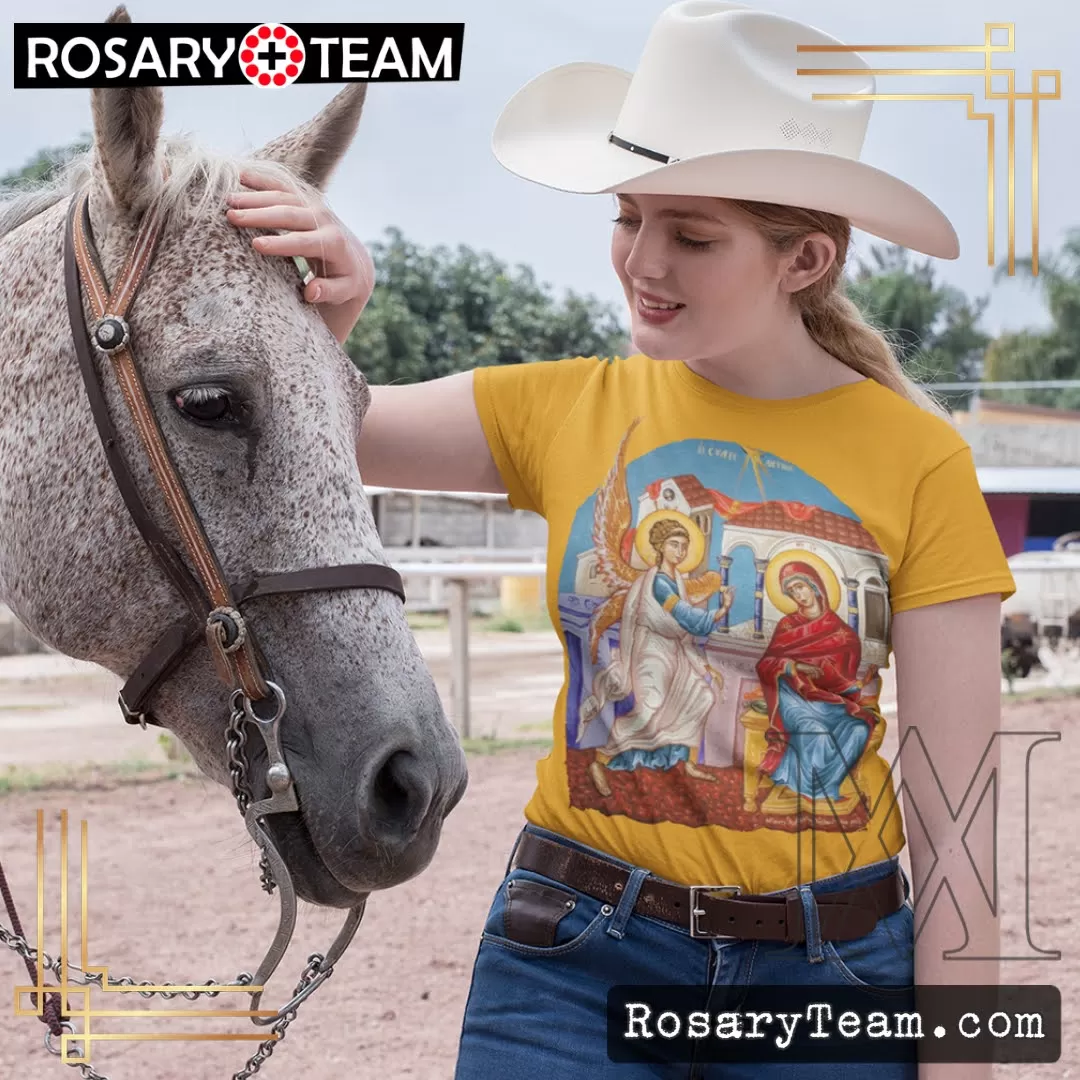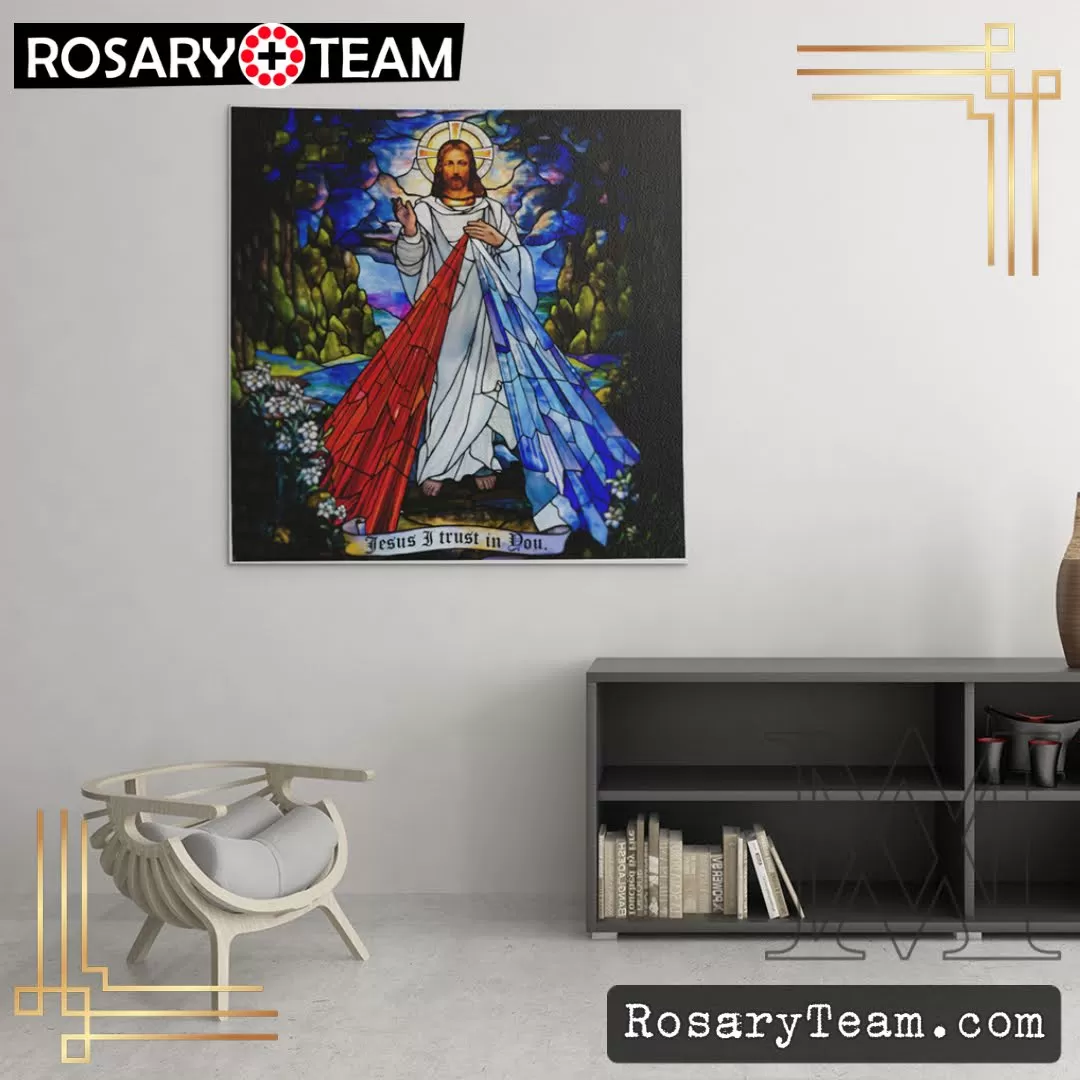Thursday, September 23 : Saint Augustine
Roman Catholic Ordinary Calendar – rosary,team


بإجابته على السؤال الذي طرحه عليه رجل غني، أظهر الرّب يسوع له كيف يمكنه أن يبلغ الحياة الأبدية. لكن فكرة التخلّي عن ثرواته، جعلت هذا الرجل حزينًا جدًا فرحل. فأعلن الرّب يسوع: “لأَن يَمُرَّ الجَمَلُ مِن ثَقْبِ الإِبرَة أَيسَرُ مِن أَن يَدخُلَ الغَنِيُّ مَلكوتَ الله “. بدوره، اقترب بطرس من يسوع، وهو الذي تجرّد من كلّ شيء عندما ترك مهنته ومركبه، والذي لم يعد يملك حتى صنّارة. وطرح هذا السؤال على الرّب يسوع: ” فَمَن يَقدِرُ أَن يَخلُص؟” لاحظ تحفّظ هذا التلميذ وحماسته في الوقت نفسه. فهو لم يقل: “أنت تطلب المستحيل، هذه الوصيّة صعبة جدًا، هذه الشريعة صارمة جدًا”. وفي الوقت عينه لم يبق صامتًا. لكن، باحترام، وبإظهار تنبّه تجاه الآخرين، قال: ” فَمَن يَقدِرُ أَن يَخلُص؟ “. فهو حتى قبل أن يصبح راعي كنيسته، كانت لديه هذه الرُّوح؛ وقبل أن يولّى سلطة…، كان يهتمّ لأمر العالم كلّه. إن رجلاً غنيًّا كان ليسأل ذلك ربما عن منفعة، لهمّه على مصلحته الشخصيّة ودون أن يفكّر بالآخرين. لكن لا يمكننا أن نشكّك في بطرس، الذي كان فقيرًا، بأنه طرح سؤاله لدوافع مشابهة. إنها علامة بأنه كان يهتمّ لخلاص الآخرين، وأن كان يرغب بأن يتعلّم من معلّمه كيف نبلغ ذلك. من هنا كان جواب الرّب يسوع المسيح المشجّع: “هذا شَيءٌ يُعجِزُ النَّاسَ وَلا يُعجِزُ الله”. يعني بذلك: “لا تعتقدوا بأني سأتخلّى عنكم. أنا بنفسي، سأساعدكم في قضيّة بالغة الأهميّة، وسأجعل سهلاً ويسيراً ما هو صعب”.
maronite readings – rosary.team

أودُّ اليوم التوقف باختصار عند أحد التّعابير التي من خلالها عَرَّف المجمعُ الفاتيكانيّ الثاني الكنيسةَ، أي تعبير “شعب الله” (“نور الأمم (Lumen Gentium)”، دستور عقائدي في “الكنيسة”، العدد 9؛ كتاب التعليم المسيحي للكنيسة الكاثوليكية، عدد 782). وسأقوم بذلك عن طريق طرح بعض الأسئلة والتي يمكن لكل واحد أن يتأمل بها. ماذا يعني أن نكون “شعب الله”؟ يعني قبل كل شيء أن الله لا ينتمي بطريقة حصرية لأي شعب؛ لأنه هو الذي ينادينا، ويستدعينا، ويدعونا كي نكون جزءا من شعبه، وهذه الدعوة هي موجهة للجميع، بدون تفرقة، لأن رحمة الله تريد “أَن يَخْلُصَ جَميعُ النَّاسِ ويَبلُغوا إِلى مَعرِفَةِ الحَقّ” (1 تم 2: 4). إن الرّب يسوع لم يطلب من الرسل أو منّا أن نشكِّل مجموعةً حصرية، أو فريقًا من النخبة. لا بل على العكس من ذلك فإنّه قال لنا: “اذهَبوا وتَلمِذوا جَميعَ الأُمَم، وعَمِّدوهم بِاسْمِ الآبِ والابْنِ والرُّوحَ القُدُس” (مت 28: 19). ويؤكد القديس بولس أن في شعب الله، في الكنيسة، ” لَيسَ هُناكَ يَهودِيٌّ ولا يونانِيّ، ولَيسَ هُناكَ عَبْدٌ أَو حُرّ، ولَيسَ هُناكَ ذَكَرٌ وأُنْثى، لأَنَّكم جَميعًا واحِدٌ في المسيحِ يسوع” (غل 3: 28). وأرغب في أن أقول لمن يشعر بأنه بعيد عن الله، وعن الكنيسة، للخائف ولغير المبالي، ولمَنْ يظن أنه لم يعد باستطاعته أن يتغير: إن الرّب يدعوك أنت أيضا لتكون جزءا من شعبه، وهو يقوم بهذا باحترام وبمحبة عظيمين! إنه يدعونا للاشتراك في هذا الشّعب، شعب الله. كيف يمكننا أن نكون جزءا من هذا الشعب؟ ليس عبر الميلاد الجسدي، وإنما عن طريق ولادة جديدة. في الإنجيل، قال الرّب يسوع لنيقوديمس إنّه ” ما مِن أَحَدٍ يُمكِنَه أَن يَرى مَلَكوتَ الله إِلاَّ إِذا وُلِدَ مِن عَلُ… مِنَ الماءِ والرُّوح”(راجع يو 3: 3-5). إننا ندخل في هذا الشعب عبر المعمودية، وعبر الإيمان بالرّب يسوع المسيح، إنها عطية من الله علينا تغذيتها وإنمائها في كل حياتنا. دعونا نتساءل: كيف أنمي الإيمان الذي قبلته في معموديتي؟ ماذا أفعل لتنمية هذا الإيمان الذي قبلته، إيمان شعب الله؟
maronite readings – rosary.team

Today I would like to reflect on another term by which the Second Vatican Council defined the Church: “People of God”… What does “People of God” mean? First of all it means that God does not belong in a special way to any one people; for it is He who calls us, convokes us, invites us to be part of his people, and this invitation is addressed to all, without distinction, for the mercy of God “desires all men to be saved” (1 Tim 2,4). Jesus does not tell the Apostles or us to form an exclusive group, a group of the elite. Jesus says: go out and make disciples of all people (Mt 28,19). St Paul says that in the People of God, in the Church, “there is neither Jew nor Greek… for you are all one in Christ Jesus” (Gal 3,28). I would also like to say to anyone who feels far away from God and the Church, to anyone who is timid or indifferent, to those who think they can no longer change: the Lord calls you too to become part in his people and he does this with great respect and love! He invites us to be part of this people, the People of God! How does one become a member of this people? It is not through physical birth, but through a new birth. In the Gospel, Jesus tells Nicodemus that he needs to be born from on high, from water and from the Spirit in order to enter the Kingdom of God (Jn 3,3-5). It is through Baptism that we are introduced into this people, through faith in Christ, a gift from God that must be nourished and cultivated throughout our life. Let us ask ourselves: how do I make this faith that I received in my Baptism grow? How do I make this faith that I received and that belongs to the People of God grow?
maronite readings – rosary,team

“Lo necio de Dios es más sabio que los hombres; y lo débil de Dios es más fuerte que los hombres” (1Co 1,25). Sí, la cruz es necedad y debilidad, pero sólo aparentemente… La doctrina de la cruz ha ganado a los espíritus por medio de predicadores ignorantes, y esto en el mundo entero. Ha iniciado una escuela donde no se trata de cuestiones banales, sino de Dios y de la verdadera fe, de la vida según el Evangelio, del juicio futuro. La cruz ha transformado en filósofos a gente sencilla e ignorante. He aquí como la necedad de la cruz es más sagaz que la sabiduría de los hombres… ¿Por qué es más fuerte? Porque se ha extendido por el mundo entero, ha sometido a todos los hombres bajo su poder y ha resistido a los innumerables adversarios que querían hacer desaparecer el nombre del Crucificado. Al contrario, este nombre se extendió y se propagó… sus enemigos perecieron, desaparecieron; lo vivos que combatían con un muerto han quedado reducidos a la impotencia… En efecto, lo que unos publicanos y pecadores, por la gracia de Dios han conseguido realizar con éxito, los filósofos, los oradores, los reyes, es decir, la tierra entera en toda su extensión, ni tan sólo han sido capaces de imaginar… Pensando en ello el apóstol Pablo dice: “La debilidad de Dios es más fuerte que todos los hombres”. De no ser así ¿cómo estos doce pescadores, pobres e ignorantes, hubieran podido imaginar una empresa de tal envergadura?
Lecturas Católicas Romanas – rosary.team

“The foolishness of God is wiser than human wisdom, and the weakness of God is stronger than human strength” (1 Cor 1:25). Yes, the cross is a foolishness and weakness in appearance only (…). It was through unlearned men that the Cross brought conviction, and drew the world to itself. It spoke to men, not of chance things, but of God, and of piety in the truth, of the Gospel polity, of future judgment, and it made uncouth and illiterate men philosophers. This is how “the foolishness of God is wiser than man, and His weakness stronger,” (1 Cor. 1:25). How is it stronger? It is stronger in that it spread over the whole earth and seized all men by force, and whereas thousands and thousands did their utmost to stamp out the name of the Crucified One, just the contrary came to pass. For this name took root and was propagated all the more, whereas its enemies were destroyed and consumed, and living men fighting a dead One, gained not a stroke. (…) For publicans and fishermen set up those very things by the goodness of God which philosophers, and orators, and despots, and the whole world vainly striving with all its might could not even devise. (…) This was in Paul’s mind when he said: “the weakness of God is stronger than all men put together.” How, otherwise, was it that twelve unlettered men attempted things of this importance?
Roman Catholic Ordinary Calendar – rosary,team

No puede haber un número más grande ni más pequeño de evangelios de los que tenemos. En efecto, puesto que por una parte, existen cuatro regiones, en el mundo en el cual existimos, y cuatro vientos principales, y por otra, la Iglesia está extendida por toda la tierra y tiene por « columna y sostén » (1Tm 3, 15) el Evangelio y el Espíritu de vida, es natural que haya cuatro columnas que soplan la inmortalidad por los cuatro lados y dan vida a los hombres. El Verbo, artífice del universo, sentado por encima de los querubines y que es quien sostiene todas las cosas (sl 79,2 ; Heb 1,3), cuando se ha manifestado a los hombres, nos ha dado un Evangelio en cuatro formas, y sostenido, sin embargo, por un único Espíritu. Cuando David imploraba su venida, decía : «Tú, que estás sentado sobre los querubines, muéstrate a nosotros» (sl 79,2). Porque los querubines, según Ezequiel, (Ez 1,6) son cuatro, y sus figuras son la imagen de la actividad del Hijo de Dios. «Así está escrito, el primero de los vivientes se parece a un león » (Ap 4,7), que es lo que caracteriza el poder, la preeminencia y la realeza del Hijo de Dios; « el segundo se parece a un toro », lo cual manifiesta la función de sacrificador del sacerdote; « el tercero tiene un rostro parecido al de un hombre », lo cual quiere evocar con claridad su venida en la condición humana; « el cuarto se parece a un águila en pleno vuelo », lo cual indica el don del Espíritu volando sobre la Iglesia. Los evangelios según Juan, Lucas, Mateo y Marco están pues, de acuerdo con lo que simbolizan los cuatro vivientes sobre los que tiene su trono Jesucristo… Estos mismos trazos se encuentran en el mismo Verbo de Dios : hablaba según su divinidad y su gloria en los patriarcas que han existido con anterioridad a Moisés; asignaba una función sacerdotal y ministerial a los hombres que han vivido bajo la Ley; seguidamente, se hizo hombre por nosotros; finalmente ha enviado el don del Espíritu sobre toda la tierra, acogiéndonos así bajo sus alas (sl 16,8)… Los que refutan la forma bajo la cual se presenta el Evangelio e introducen, ya sea un número mayor o menor de figuras de las que ya existen en el Evangelio, son inútiles, ignorantes y presuntuosos.
Lecturas Católicas Romanas – rosary.team

Jesus…! How great is your humility, O divine King of Glory, in submitting yourself to all your priests without distinguishing between those who love you and those who, alas!, are lukewarm or cold in your service. You come down from heaven at their call; they can make the hour of the holy sacrifice earlier or later, but you are always ready. O my Beloved, how meek and humble of heart (Mt 11,29) you seem to me beneath the veil of the little, white host. You could not have humbled yourself more to teach me humility; in the same way, in response to your love, I want to desire that my sisters should always set me in the lowest place and to be able to convince myself that this place is truly mine… I know, O my God, that you cast down the proud soul but give an eternity of glory to those who humble themselves. I want, then, to set myself in the lowest place, sharing your humiliation so as to “have an inheritance with you” (Jn 13,8) in the Kingdom of Heaven. Yet, Lord, you know my weakness. Each morning I take up my resolution to practice humility and, by evening, I realise I have still committed many failings of pride. Seeing this, I am tempted to discouragement. However, as I well know, discouragement is also an act of pride! And so, O my God, what I want to do is to base all my hope on you alone. You can do all things, so be pleased to bring to birth in my soul the virtue I am looking for. And to obtain this grace from your infinite mercy, I will say repeatedly: “O Jesus, meek and humble of heart: make my heart gentle and humble as yours!”
maronite readings – rosary,team

يا لتواضعك يا ربّي يسوع المسيح! أنت تغمر النفس بفرح لا يوصف. أنا ظمآن إليكَ، ففيك تنسى النفس الأرض وتتوق باتّقاد إلى الله. لو فهم العالم قوّة الكلمات التي قالها الرّب يسوع: “تَتَلمَذوا لي فإِنِّي وَديعٌ مُتواضِعُ القَلْب” (مت 11: 29)، لوضع جانبًا كلّ علم آخر، ليكتسب هذه المعرفة السماويّة. لا يعرف الناس قوّة تواضع الرّب يسوع؛ وهم يرغبون في الأمور الأرضيّة. لكنّ الإنسان لا يسعه أن يدرك قوّة كلمات الربّ من دون الرُّوح القدس. لكن مَن يفهمها لا يمكنه التخلّي عنها، حتّى لو قُدِّمت له كنوز العالم كلّها… ذاك الذي تذوّق حبّ الله اللطيف هذا لا يمكنه أن يفكّر بعد ذلك بالأمور الأرضيّة؛ بل يشعر بأنّ هذا الحب لا ينفك يجتذبه. لكنّنا نفقده بسبب كبريائنا وغرورنا، بسبب عداواتنا مع إخوتنا والأحكام التي نصدرها عليهم؛ نتخلى عنه بأفكارنا الجشعة وبنزوعنا نحو الأرض. فتتخلّى عنّا النعمة، وها هي النفس المضطربة والمكتئبة تطلب الله وتناديه، كما آدم المطرود من الفردوس. نفسي تتوق إليكَ وأنا أبحث عنك وعيوني مغمورة بالدموع! انظر إلى حزني وأنِر ظلمتي حتى تعرف نفسي الفرح! ربي، أعطِني تواضعك حتّى يدخل حبّك إلى نفسي وتعيش مخافتك فيّ.
maronite readings – rosary.team

It is not possible that the Gospels can be either more or fewer in number than they are. There are four zones of the world in which we live, and four principal winds, and the Church is scattered throughout all the world, and her “pillar and ground” (1 Tm 3:15) is the Gospel and the Spirit of life; therefore it is fitting that she should have four pillars, breathing out immortality on every side, and vivifying us afresh. The Word, the Shaper of all things, who sits upon the cherubim and upholds all things (Ps 79:2; Heb 1:3), who was manifested to men, has given us the Gospel under four aspects but bound together by one Spirit. David says, when entreating this manifestation, “You that sit between the cherubim, shine forth.”(Ps 79:2) For the cherubim, too, were four-faced (Ez 1:6), and their faces were images of the dispensation of the Son of God. For, as Scripture says, “The first living creature was like a lion,” (Rev 4:7) symbolizing his effectual working, his leadership, and royal power; “the second was like a calf”, signifying his sacrificial and priestly order; but “the third had, as it were, the face as of a man,”-an evident description of his coming as a human being; “the fourth was like a flying eagle,” pointing out the gift of the Spirit hovering with its wings over the Church. And therefore the Gospels of John, Luke, Matthew, and Mark are in accord with these living things, among which Christ Jesus is seated. (…) Such was the form of the living creatures, so was also the character of the Word of God himself: the Word of God himself conversed with the patriarchs before Moses in accordance with his divinity and glory; but for those under the law he instituted a priestly and liturgical service. Afterwards, being made man for us, he sent the gift of the Spirit over all the earth, protecting us with his wings (Ps 16:8). (…) These things being so, all who reject the form the Gospel has taken – that is, those who say the Gospels should be more or fewer in number – are futile, ignorant, and presumptuous.
Roman Catholic Ordinary Calendar – rosary,team